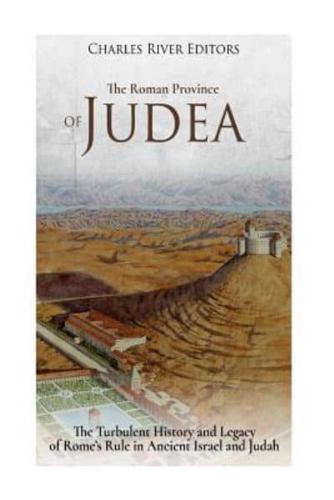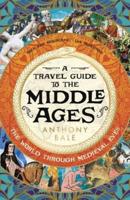Publisher's Synopsis
*Includes pictures
*Includes ancient accounts
*Includes online resources and a bibliography for further reading
Judea is one of the most important regions in the modern world. It is the center of two of the world's great religions and extremely important to a 3rd. Politically, the whole area is the focus of conflict between Jews and Arabs, as well as different Muslim sects. Its history is littered with wars, insurrections, and religious revolutions. To say that it has had a turbulent past is to understate the case in the extreme.
The history of Judea is, of course, inextricably linked to the history of the Jewish people, their dispersal throughout the Mediterranean world, and their reestablishment of the modern state of Israel in the wake of the horrors of the Holocaust. And among all the tumultuous events associated with Jewish history, few can rival the period of Roman rule during the 1st century CE, when Roman attempts to suppress Jewish nationalism met with violent resistance. Ultimately, the Romans forcibly removed much of the Jewish population from the region, setting the scene for later events that have impacted so directly on world history. Events in the region during the 1st century CE also brought about the birth of Christianity, a religious movement that has been at the forefront of European history ever since.
The fact that Jerusalem has been sacked and razed on approximately 20 occasions since the assumed dates of King David has made it virtually impossible to find any evidence to corroborate the theory, but the task was made a little easier by the discovery of the Tel Dan Stele which has been dated to the late 9th century/early 8th century BCE and contains a reference to the House of David. Many scholars now accept the existence of some kind of state ruled by David and Solomon, though have concluded that it was on a much smaller scale than portrayed in the Bible. This whole period relating to the United Monarchy, and the events leading up to the Assyrian invasion, has been the subject of fierce debate between religious scholars and what might be termed more dispassionate academics. The issue of the "Historicity of the Bible" is a massive field of study in its own right but for the purposes of this paper the words of T.L Thompson sums up the position of those who refuse to consider any possibility that the Bible may contain historical facts in relation to the original origins of the Kingdoms centered on Judea: "There is no evidence of a United Monarchy, no evidence of a capital in Jerusalem or of any coherent, unified political force that dominated western Palestine let alone an empire of the size the legends describe. We do not have evidence for the existence of kings named Saul, David or Solomon, nor do we have evidence for any temple at Jerusalem in this early period."
Despite the lack of definitive corroborating evidence, the myths surrounding the Kingdoms of Judah and Israel became so ingrained in the Jewish psyche that any attempt to prove them to be misguided, historically speaking, invariably fall on deaf ears. Even today, Jewish claims to the ownership of the lands disputed with the Arabs are based on the belief in this "historic kingdom." The belief, and absolute conviction, in Jewish rights to inhabit and rule this land as an independent entity has existed from the Classical period onwards, and was just as fiercely held in the period of Roman rule. As events played out, that proved to be central in shaping the whole history of the region.
The Roman Province of Judea: The Turbulent History and Legacy of Rome's Rule in Ancient Israel and Judah examines one of the most fascinating chapters in the history of the Roman Empire. Along with pictures depicting important people, places, and events, you will learn about the Roman province like never before.






